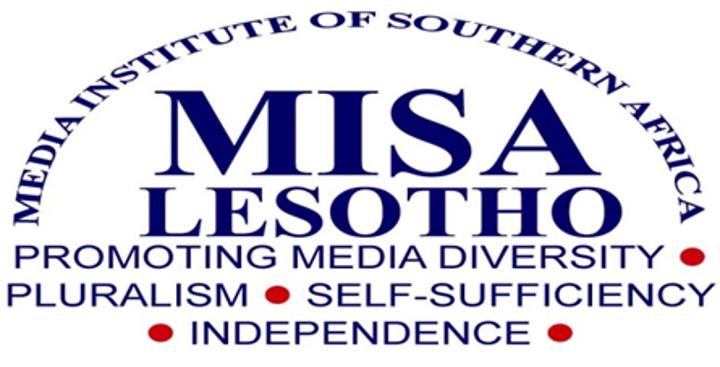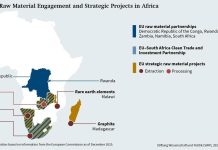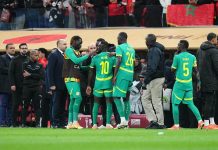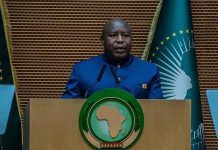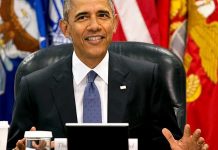Africa-Press – Lesotho. Editors across media houses in Lesotho have agreed to work together for the success of the upcoming elections through professional and ethical reporting which will be bound by the national code of conduct. This was reached at a one-day meeting of editors organised in Maseru on Monday this week.
Through the funding of the United State of America Embassy in Lesotho (US embassy), the Media Institute of Southern Africa (MISA)-Lesotho hosted a one-day editors’ workshop in Maseru this week in preparation for upcoming general elections.
The National Director of MISA Lesotho Lekhetho Ntsukunyane said the purpose of the workshop was to check the preparedness of newsrooms both in broadcasting, print and online media.
He pointed out that among other issues that were discussed at the workshop was if the media houses are able to analyse the political party manifestos looking at the promises that are made year-in and year-out during elections.
“For example, we know that for a very long time political party manifestos have been mentioning issues such as fixing roads, eliminating poverty, connecting electricity where needed and so on,” said Ntsukunyane.
He added: “What we have to question lately is whether the political manifestos do address the Sustainable Development Goals (SGDs) and the climate change issues; do political parties take note to include them in their manifestos?”
Ntsukunyane also said other issues of concern at the workshop were issues of reporting gender equality in all spheres especially in politics. “It is our responsibility as reporters to ensure that democratic rule is entrenched in all spheres of life including that women form part of decision making and leading roles in political parties,” Ntsukunyane said.
He added that one other thing that is encouraged for editors through this workshop is that newsrooms should have teams that will be reporting on elections and ensure equal coverage of all political parties no matter how big or small they are.
Despite that the invitation to the workshop was clear that it is for editors, Ntsukunyane said as organisers they are disappointed that some media houses did not adhere to the call and, instead, sent their ‘senior’ reporters.
The United States Ambassador to Lesotho Maria Brewer said: “The MISA Editors’ Workshop is one of the critically important initiatives to promote free, fair, transparent, and violence free elections that reflect the true will of the citizens of Lesotho.
The press plays an essential role in informing the public about the elections, candidates, issues, and outcomes. ” Brewer further noted that the US Embassy is pleased to support organisations such as MISA Lesotho in raising the awareness of journalists in their important role and in offering to help build their skills in carrying out its mandate.
She said the real beneficiaries of election activities like this are the people of Lesotho. “To that end, it is in the interests of the United States that the people of Lesotho are able to participate in and benefit from a viable and sustainable democratic system, which necessarily includes an active, free, and capable press corps,” Brewer noted.
Ntsukunyane said through the support of the US Embassy, MISA-Lesotho has previously held trainings for reporters and this one was specific for editors as decision-makers who finalise which news gets published and which ones do not.
“The workshop was meant for the editors because as the decision-makers, we need to discuss certain issues with them only,” Ntsukunyane said adding that the fact that some editors did not attend in person, compromised the desired impact.
“The editors’ role is very important for this workshop because they are the gatekeepers, we need them to have the understanding which they will pass on to the reporters,” Ntsukunyane added.
The Lesotho National Broadcasting Service (LNBS) News Editor Melinda Pinda said the workshop was important because as editors they were able to form working relationships or strengthen them for those who already had.
“It was important because sometimes when we work in silos we tend to think that we are doing everything right yet there are some challenges that we don’t know how to tackle on our own.
Therefore, through this workshop we learned that from now on we need to work as one and share our experiences and challenges and not work as rivals,” Pinda said.
Bokamoso FM news editor, ‘Mankalimeng Rasethuntša also noted that the workshop was important for editors as it nourished their minds on how to report news relating to elections and politics.
Rasethuntša said they would pass on everything they learned from the workshop to their reporters as they are the frontline executors. Both Phinda and Rasethuntša said they learned that it is important to study and analyse the political parties’ manifestos, both current and old before inviting them for interviews.
They said this will enable one to be able to scrutinise politicians based on facts. The media is one of the seven key sectors that were earmarked for reforms as a way of reaching a long-term solution to Lesotho’s political instability. The sector has been accused over the years as one of the factors fuelling conflicts among competing parties.
For More News And Analysis About Lesotho Follow Africa-Press

